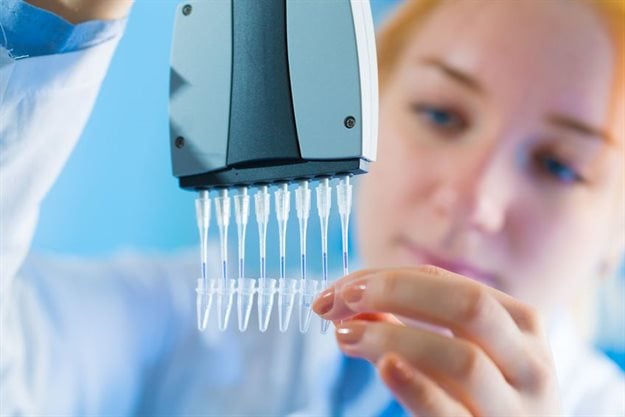Many African countries struggle with the provision of safe and effective radiopharmaceuticals to diagnose or treat diseases. Self-audits and the implementation of simple, affordable interventions in their radiopharmacies, which prepare and dispense these radioactive medicines, could help them overcome this.
This is one of the main findings of a new study at Stellenbosch University (SU).
“International guidelines for radiopharmacy practice recommend complex facilities and extensive quality management programmes that are difficult to meet in developing countries. These countries could benefit from the implementation of a good quality management system, correctly used and well-maintained good laminar air flow cabinets, appropriate staff training and strict adherence to aseptic techniques,” says Dr Fany Ekoume from a nuclear medicine facility in Cameroon.
Ekoume obtained her doctorate in nuclear medicine at SU’s December 2020 graduation. This PhD is the culmination of a journey that started at SU in 2007 thanks to a fellowship from International Atomic Energy Agency, and led to a master’s degree from SU in 2011.
Highlighting the importance of her research, Ekoume says that, “Investment in establishing and maintaining well-designed clean room facilities and suitable equipment for quality control monitoring remains the best option for ensuring safety and efficacy of radiopharmaceuticals.”
Investigating improvement without major expenditure
To investigate the consequences of not meeting international requirements, and whether practice can be improved without major expenditure, Ekoume, who did most of her doctoral research while working in Cameroon, looked at aspects of quality management in three radiopharmacies with different facilities and economic backgrounds in Cameroon, South Africa and the Netherlands. She points out that nuclear medicine departments and radiopharmacies in South Africa and the Netherlands have been cooperating for several years.
As part of her study, Ekoume evaluated the status of radiopharmacy in Cameroon and South Africa through self-audits by staff members of a radiopharmacy or nuclear medicine unit. Aspects that were evaluated included staff training and competence, the facility, preparation and dispensing protocols, and handling of radioactive waste.
She then compared the data from the recently implemented quality assurance programmes in Yaoundé with routine quality data from a South African radiopharmacy, as well as a state-of-the art radiopharmacy in the Netherlands. According to Ekoume, the initial status of quality management in Cameroon was very low compared to that in the one South African radiopharmacy that she looked at in her study.
Improvement in the standards, quality management
“We found that the implementation of relatively simple, affordable corrective actions at a hospital in Cameroon led to a clear improvement in the standard of radiopharmacy practice and quality management.
“Staff training and record keeping were improved, annual performance reviews were introduced, a transfer hatch between the radiopharmacy and the injection room was installed, and the room lay-out in the radiopharmacy was rearranged.
"Following the initial monitoring of air quality in the radiopharmacy, several measures were introduced to improve cleanliness in the facility," says Ekoume.
“A simple small contamination monitor can now reliably be used for counting the radioactivity on radiochromatograms (counting radioactivity after chemical separation of different molecules) enabling daily testing of the radiochemical purity (i.e., radioactivity present in the desired chemical form) of radiopharmaceuticals at the hospital.”
Implementing good practice
Ekoume says the results of her study can contribute significantly to enhancing the quality of work and radiopharmaceuticals in radiopharmacies in low-income countries.
“The adapted tool that was used for self-audits should be useful for audits by African radiopharmacies. Other radiopharmacies working under comparable conditions can use the methods described in my study as an example of implementing good practice for radiopharmacies.”
Ultimately, the patients will benefit from the availability of safe and effective radiopharmaceuticals, she adds.



























